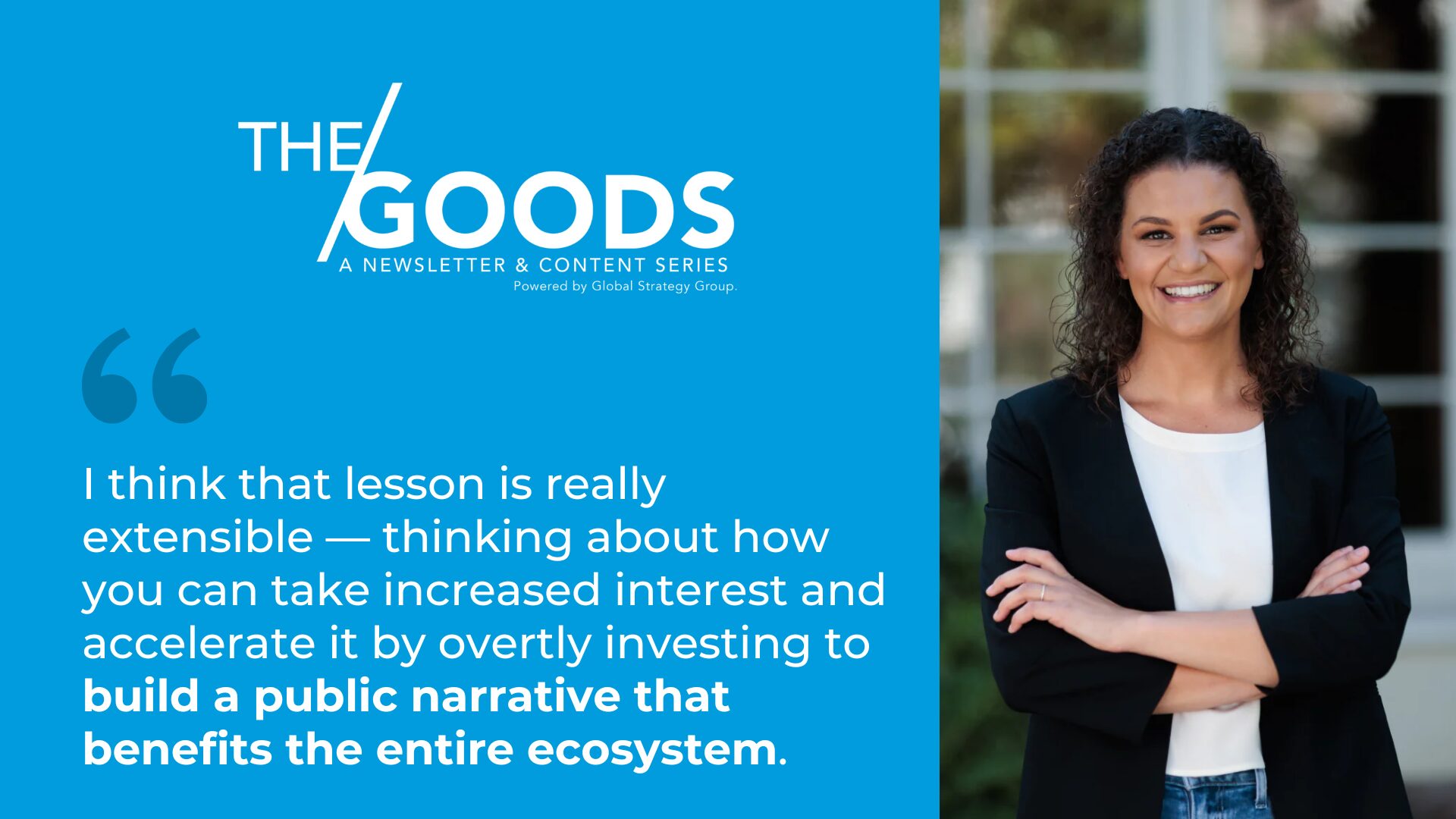
Welcome back to another edition of The Goods — the newsletter covering the intersection of social good and strategic communications. This month’s Spotlight features Jasmine Robinson, Co-Founder and Managing Partner of Monarch Collective, an investment platform fueling the rise of women’s sports.
Jasmine’s path, from Bain and The Raine Group to the San Francisco 49ers and Causeway, now powers an investing model that treats narrative as infrastructure: convening capital, audience, and values to grow an entire category, not just a single organization. She leads investments at a time where women’s sports are on a rocket trajectory.
Monarch Collective is an investment platform focused exclusively on women’s sports, building institutions that “inspire and unite” by backing teams, leagues, and rights across the ecosystem. The firm launched in 2023 and has since expanded its fund to $250 million, reflecting surging demand and confidence in the category. Its portfolio includes stakes associated with Angel City FC, San Diego Wave FC, and the Boston NWSL club, with support from a roster of high-profile, values-aligned backers.
Read our full interview with Jasmine Robinson:
The Goods: There’s been an undeniable increase in interest in women’s sports over the past few years. What can social impact professionals from other sectors learn about creating or taking advantage of increased interest in their sectors?
Jasmine: From the time that we started Monarch, my Co-Founder Kara and I felt it was really important to be as vocal as possible about why we think women’s sports is a great investment and specifically how we approach our investment strategy as a way to bring more capital in the women’s sports ecosystem. We believed growth would come quickly enough that winning for this market meant as many great people investing capital in the space as possible vs. capitalizing on our first-to-market positioning as a fund focused exclusively on women’s sports. I think that lesson is really extensible–thinking about how you can take increased interest and accelerate it by overtly investing to build a public narrative that benefits the entire ecosystem.
The Goods: How do you go about building a convincing narrative that gets investors excited about women’s sports?
Jasmine: When we launched Monarch in January 2023, we were operating in a much more nascent women’s sports market. I remember early investors we approached would ask us questions like “Does anyone want to watch women’s basketball?” that seem hard to believe today! We used that as an opportunity to build a base of investors who were able to see the vision we painted for a world where women’s sports were mainstream and had the opportunity to rival men’s sports and also who really cared about the social impact that vision of the world would deliver. It was as much about delivering the narrative in a compelling way as finding the investors who could buy into that narrative. The result is an investor base and community that is deeply values-aligned, passionate about women’s sports, and who are a real superpower for how we continue to scale Monarch over time.
The Goods: How do you navigate when to take risks and when to stay the course?
Jasmine: In the context of our investment strategy, we see women’s sports as a space where we can deliver strong risk-adjusted returns to our investors because we believe those who aren’t as deep in the ecosystem are overstating the risk on some important dimensions. Our approach is to invest in a few opportunities where we have high conviction and then to do the work to deliver against the vision for growth. Given that, we try to be very disciplined on our thesis about where we think value will be created in women’s sports to limit risk, while moving quickly in those areas where others see risk but we’ve done the work to believe that risk is overstated compared the opportunity size.
The Goods: Which aspects of your work are more important now than ever? How are you adapting your strategies and tactics to meet the current moment?
Jasmine: In a world that is increasingly divided and mediated by technology, sports has the unique ability to bring people together in real world communities. Women’s sports events are fun, joyful experiences that serve to unite and I think that’s really important in the world today. I think the political and cultural climate we’re in today just make the work of growing women’s sports more purposeful and important and so it’s motivated our team to move even faster and more intentionally around how we can deliver against that.
The Goods: What skills or lessons do social impact professionals need to learn?
Jasmine: There are many impact models that work. What I’ve really enjoyed about the way we’ve designed our approach at Monarch is that delivering on our impact goals really tightly maps to our ability to drive returns. That design makes our incentives so aligned that impact is woven into the way we do everything as a firm. Thinking hard about the model, systems, and incentives that underpin social impact goals in the early stages can supercharge your ability to deliver on that impact.